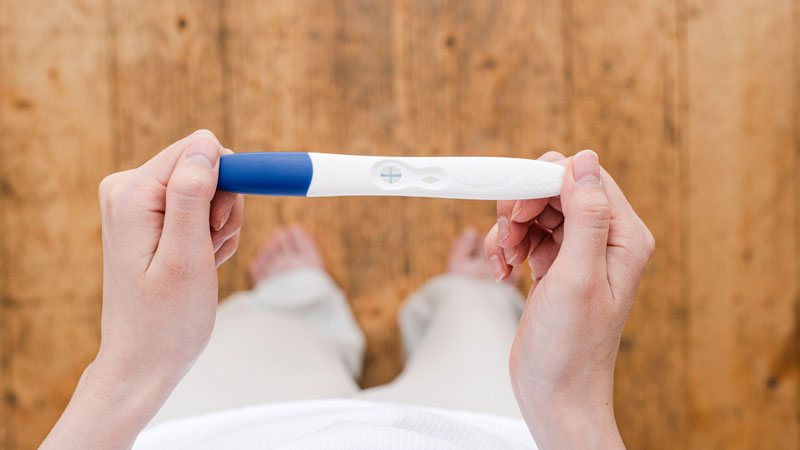Prescription Drugs | 3 min read
Should You Take Gabapentin While Pregnant?
Medically Reviewed By

On September 11, 2023
Written By
On September 11, 2023

What you will learn
- Gabapentin belongs to the class of drugs called anticonvulsants and is a Schedule V drug with lower risk of addiction than most prescription pain medications.
- It is often prescribed to treat nerve pain and pain caused by shingles.
- There has been a correlation between the use of Gabapentin preterm births or low birth weights.
- Studies have shown that babies who drink milk containing gabapentin have no side effects.
- Misusing Gabapentin or combining it with other medications is potentially harmful to an unborn baby.
Gabapentin is a prescription pain medication often used to treat various forms of pain and pain caused by shingles. It is a Schedule V controlled substance that carries a lower risk of addiction than other prescription pain medications.
Many people are afraid to take prescription medications while pregnant due to the risk of adverse effects on the developing fetus. But should you take gabapentin while pregnant?
*Disclosure: Always consult a medical physician regarding any type of medication use while pregnant.
Is Gabapentin Safe for Pregnant Women?
According to studies, the rates of malformations were the same among pregnant women who took gabapentin compared to those who did not[1]. Still, there was a correlation between the use of this medication and the number of preterm births. These preterm births caused the resulting babies to have a lower birth weight on average. A quarter of the babies exposed to this medication required admittance to the special care nursery or neonatal intensive care unit.
However, this specific study only involved 223 participants. This is a very small sample size and insufficient to draw any definitive conclusions about how gabapentin affects pregnant women and the fetus. Other studies show that the connection between gabapentin and adverse birth outcomes is mostly inconclusive.
Gabapentin and Breastfeeding
Medications can be excreted through breast milk. The medicines in the blood can diffuse into the milk buds within the breasts, effectively entering the milk supply. Despite this, the medication that ends up in the milk is minimal.
Most of the medication will already be absorbed by your body and broken down by your liver. The remaining medication secreted into your breast milk should not affect the baby. Studies have shown that babies who drink milk containing gabapentin have no side effects. You should only be concerned if your baby starts acting unusual.
There may be a risk if you take opioids with gabapentin while pregnant. This may result from an uncommon interaction with gabapentin, or it may be something else. If the baby seems tired, weak, or upset, you should talk to your doctor immediately.
Combining these two medications may cause strange withdrawal symptoms in the child once born.[2] These may include restlessness, rapid eye movements, back arching, and muscle twitching. It is unknown how these side effects may affect the child long-term. It is also unknown how gabapentin exposure alone during pregnancy will affect a child over the years.
Does Gabapentin Affect Fertility?
If you are not yet pregnant but want to be, you might wonder if this medication will negatively affect your chances. So far, studies have not drawn any connections between the use of Gabapentin and being able to get pregnant. You should always talk about the medications you’re taking and your pregnancy goals with your doctor.
Most doctors will give women folic acid supplements. These will help reduce the risk of congenital disabilities, especially those that affect the brain and spinal cord. Also, if you suffer from seizures, you should not stop taking this medication if you become pregnant. Doing so will cause your seizures to return.
Seizures are known to be bad for developing fetuses. Some seizures can stress the body so much that it may lead to a miscarriage. Taking gabapentin is overall safer than having seizures while pregnant.
Should You Take Gabapentin While Pregnant?
Gabapentin is a potent anticonvulsant medication, and most studies show that it should not harm a developing fetus. There may be a possible correlation between gabapentin use and preterm births, but more studies are needed to determine the correlation.
If you are at risk for seizures, your doctor recommends that you take gabapentin while pregnant. If you are already taking gabapentin, do not stop using the medication without first consulting with your provider.
What Happens if You Misuse Gabapentin During Pregnancy?
If you are pregnant and misusing gabapentin or combining gabapentin with other medications that are potentially harmful to your unborn baby, it is important to seek immediate assistance. Help is available, and it is not too late to protect yourself and your developing baby from the dangers of drug misuse. Contact Ascendant NY today.
Studies have shown this medication has little to no effect on most developing fetuses. Only a small subset of newborns are born preterm and may have to be treated in the special care unit. Despite this potential risk, if you have seizures, it is safer to keep taking the medication rather than let your seizures risk your pregnancy.
Newborns may experience withdrawal symptoms if the mother was taking gabapentin throughout her pregnancy up until the birth. However, the withdrawal symptoms may be more of a problem if you took opioids with gabapentin during your pregnancy.
This combination has been shown to produce more unusual side effects in newborns, and it is not known how these effects will affect the child as they grow.
Ascendant New York Editorial Guidelines
Here at Ascendant New York, we understand the importance of having access to accurate medical information you can trust, especially when you or a loved one is suffering from addiction. Find out more on our policy.
[1] Fujii, H., Goel, A., Bernard, N., Pistelli, A., Yates, L. M., Stephens, S., Han, J. Y., Matsui, D., Etwell, F., Einarson, T. R., Koren, G., & Einarson, A. (2013). Pregnancy outcomes following gabapentin use: results of a prospective comparative cohort study. Neurology, 80(17), 1565–1570. Retrieved from https://www.ncbi.nlm.nih.gov/pmc/articles/PMC3662323/ on 2023, May 28.
[2] Mother To Baby | Fact Sheets [Internet]. Brentwood (TN): Organization of Teratology Information Specialists (OTIS); 1994-. Gabapentin. 2024 Jan. Available from: https://www.ncbi.nlm.nih.gov/books/NBK582723/
[3] Goyal, S., Saunders, K. C., Moore, C. S., Fillo, K. T., Ko, J. Y., Manning, S. E., Shapiro-Mendoza, C., Gupta, M., Romero, L., Coy, K. C., McDow, K. B., Keaton, A. A., Sinatra, J., Jones, K., Alpren, C., Barfield, W. D., & Diop, H. (2020). Identification of Substance-Exposed Newborns and Neonatal Abstinence Syndrome using ICD-10-CM — 15 hospitals, Massachusetts, 2017. Morbidity and Mortality Weekly Report, 69(29), 951–955. https://doi.org/10.15585/mmwr.mm6929a2 on 2024, May 25.




